Books: Great restaurants, extinction, Egypt and happiness
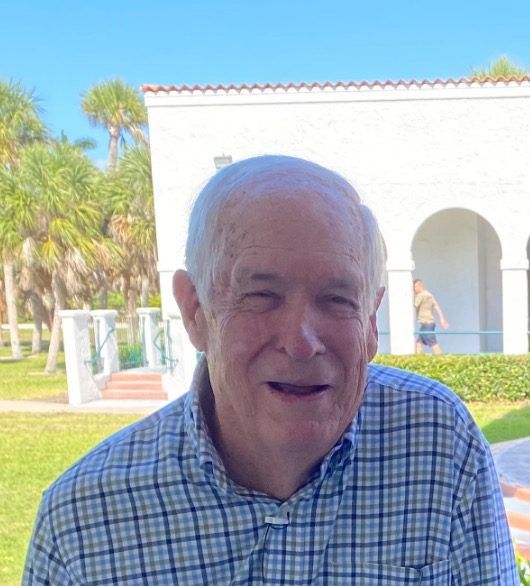
2025 Book series with Roger Lewis’ picks
BY FRIENDS OF BOCA GRANDE
Each year, the Friends of Boca Grande have a book series with titles picked by Roger Lewis. Below are titles for the season, in a Q&A format.
BEACON: Thanks for sitting down with us to talk about the third year of “Roger’s Picks.” Let’s start with a few basic questions. First, will you have a complete program this year, and second, is there a basic underlying theme to this year’s speakers?
LEWIS: Yes, there will be a complete program of four speakers this year. As you know, the Community Center was badly damaged in Hurricanes Helene and Milton, so we will be starting in St. Andrew’s Church here in Boca Grande.
As for themes, this year the four speakers cover very diverse subject areas that span topics from a different look at American history, the philosophy of happiness, the impact of the extinction of species on our lives, and the remarkable life of an Egyptologist.
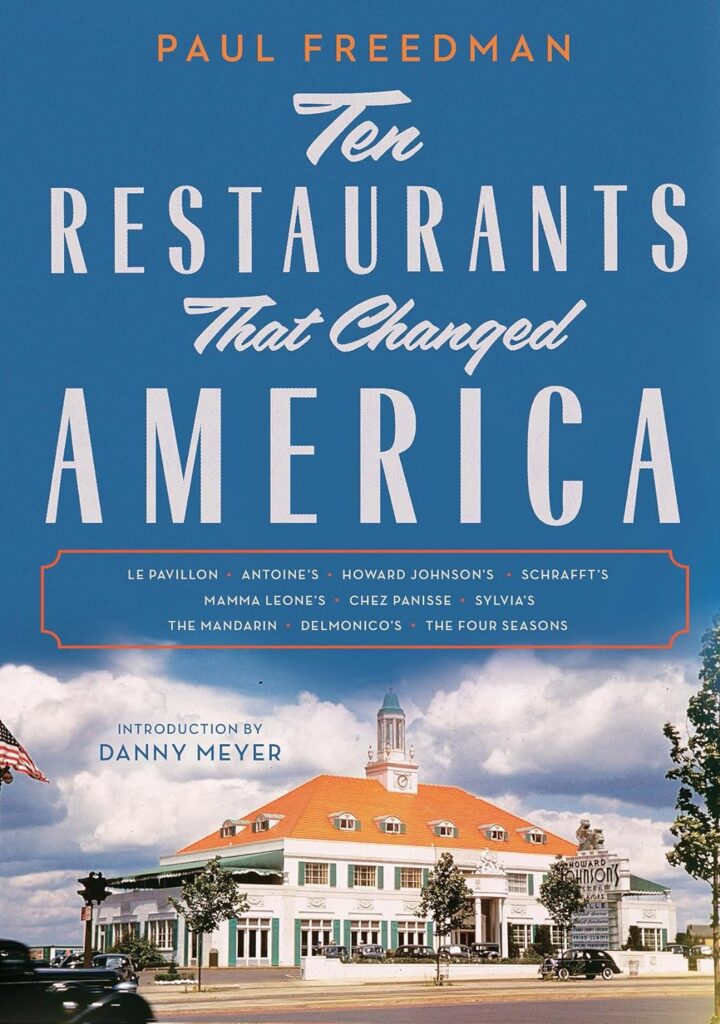
BEACON: Sounds interesting. Tell us more.
LEWIS: Our first speaker is Paul Freedman, speaking on “Ten Restaurants That Changed America,” on Friday, Jan. 10 at 4:30 p.m. Note that it is not the “10 best” restaurants in America but focuses on chefs, food, and trends that altered the way we look at history and dining out.
BEACON: Can you give us some examples?
LEWIS: Sure. America’s first formal restaurant was Delmonico’s. It represented a major change from the taverns, lodging houses, and street stands selling food. A menu from 1838 showed forty veal dishes, eight partridge dishes and four preparations of venison.
The book ends on Chez Panisse, which looks at basic questions, such as where food comes from and how restaurants are stewards of the earth.
BEACON: Why did this book appeal to you?
LEWIS: Basically, it was a different way of looking at social and political history. Ten Restaurants That Changed America examines questions like the role of women as consumers, immigration, and migration, to name a few. If you are interested in history, restaurants, and food, this is a great lecture for you.
BEACON: Who is next?
LEWIS: One of my favorite writers on environmental issues, Elizabeth Kolbert, will be speaking on an updated version of her book, The Sixth Extinction.
BEACON: What is the premise of the talk?
LEWIS: In essence, since the dawn of mankind, humans have been expanding their footprint on the earth. At one time, they battled animals up to twenty times their size to survive, and these animals no longer exist. They are extinct.
BEACON: What does that have to do with today?
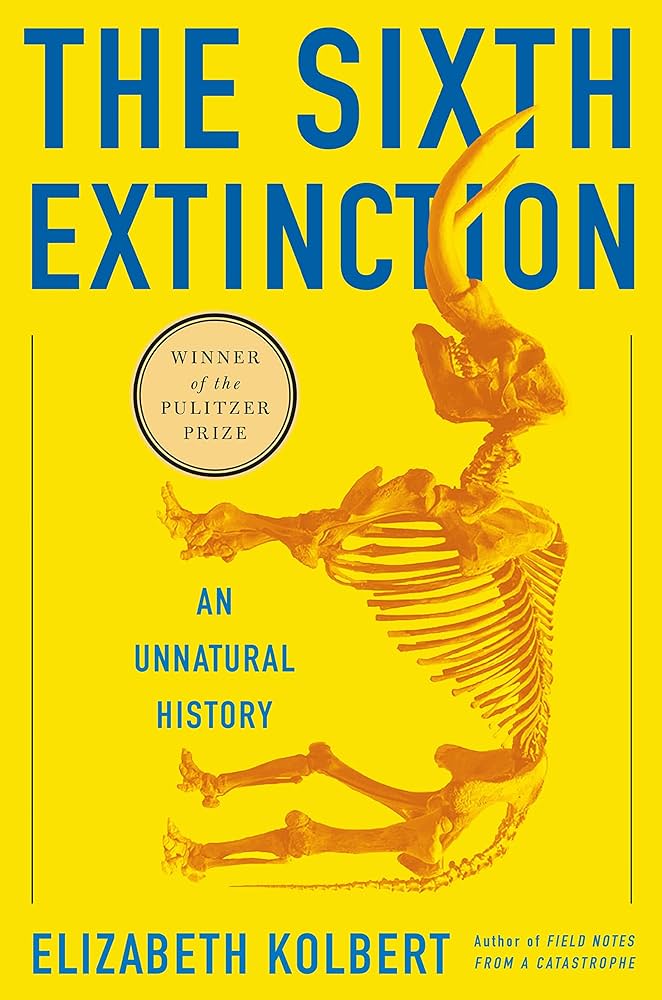
LEWIS: The significance is that many species of birds, plants, fish, and animals are becoming extinct at an alarming rate. While we don’t think about it, we really do not fully understand the human connection with the natural world and our codependency.
BEACON: An example, please.
LEWIS: Sure. The one everyone is most familiar with is the need for bees to fertilize crops and plants. This year, there have been many articles written about the decline in bee populations. Why is this happening? What will we do without bees? How can we revive the species? Another example discussed in the book is the severe decline in the bat population. Most people probably think this is a good thing, but the loss of bats will require more pesticides. This has a host of other consequences.
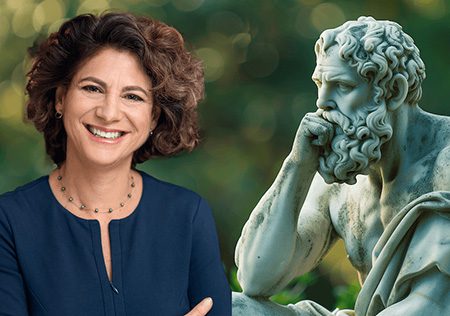
BEACON: Should be a very interesting presentation. Who is next?
LEWIS: Our next speaker is going to introduce us to a fascinating look at the subject of happiness. Tamar Gendler (pictured above) is the Dean of the Faculty of Arts and Sciences at Yale University. Her writings engage with philosophy and cognitive science.
BEACON: Tell us more.
LEWIS: She is going to talk about the ancient secrets to modern happiness using the works of Plato, Aristotle, Cicero, Socrates, and Epictetus to see what they have to say about happiness based on the questions they raised about what humans need to thrive individually and in community.
BEACON: Sounds like heavy stuff!
LEWIS: It does, but Tamar makes it very understandable as she covers the concepts of self-knowledge, self-harmony, friendship, self-reliance, and habits and how they relate to personal happiness. It is a fascinating presentation that should be relevant to everyone.
BEACON: And your fourth speaker?
LEWIS: Lynne Olson. Lynne has spoken here several times before on a variety of topics related to World War II. While Empress of the Nile includes that war, it is a fascinating biography of Christiane Desroches-Noblecourt.
BEACON: Can you tell us more about her?
LEWIS: Basically, she was a strong-willed individual who fought the glass ceiling of men being the only ones allowed to be French Egyptologists.
BEACON: Some highlights of her life?
LEWIS: One thing people don’t usually think about is what happened to the treasures of the Louvre when the Germans took control of Paris. She was actively involved in that activity, and since it is Lynne Olson, there is a bit of spying going on also.
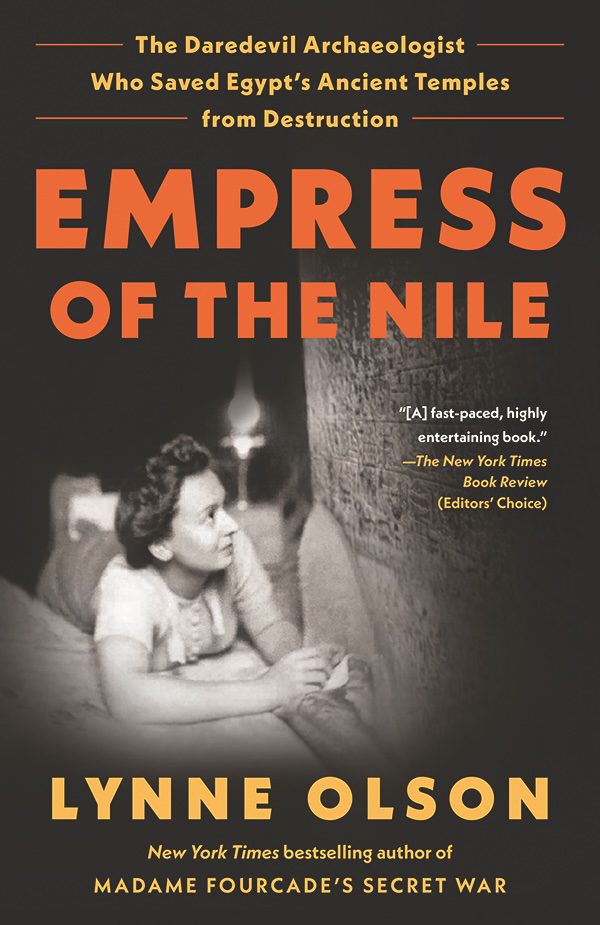
BEACON: Was she involved with the Aswan Dam project?
LEWIS: In a major way! She saved many historical artifacts from being flooded out. Perhaps the most notable was the Temple of Dendur. The Kennedys were major supporters of the project to save antiquities from the new flood plain of the Aswan Dam. Jackie wanted the temple to be on the Potomac River, but eventually, it ended up at the Met.
BEACON: Sounds like the speakers cover a wide range of interesting topics. We will look forward to them!
Tickets are available for one or all of them by calling the Friends office at (941) 964-0827 or online at friendsofbocagrande.org.
- New Farlow’s restaurant Chophouse285 anchors Englewood’s Dearborn Street
- Schmaltz & Pepper for All That Jazz
- Charlotte meets on beach access; Placida park project moves forward
- World of mangroves the subject of conservation lecture series talk at Englewood Chamber of Commerce
- Magano at Camera Club talks on light-painting and photography









